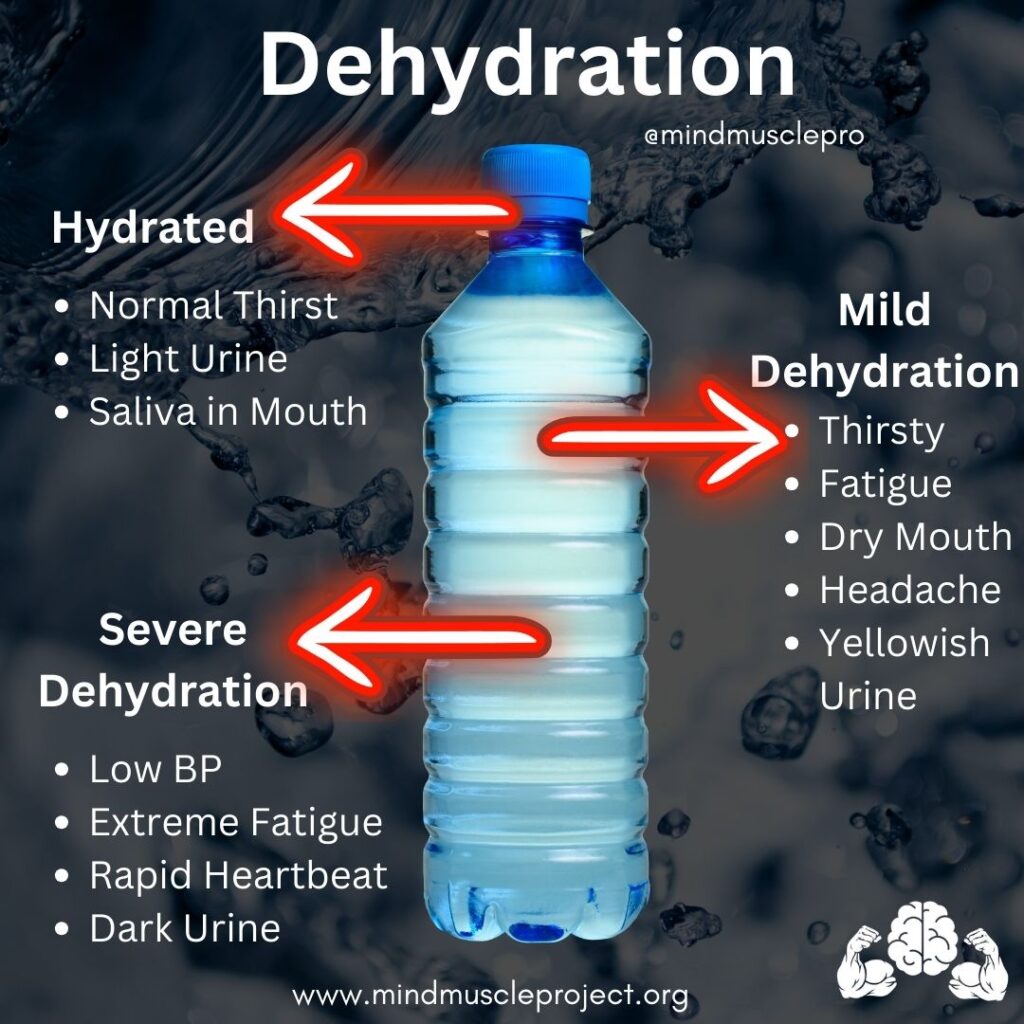Water is life—literally. It makes up the majority of our body and is essential for countless biological processes. Yet, staying properly hydrated is often overlooked, and dehydration can creep in without us even realizing it.
In this post, we’ll explore the critical role water plays in your body, the causes and effects of dehydration, and practical tips to stay hydrated and maintain optimal health.
Why Water is Essential for Your Body #
Water is not just about quenching thirst. It serves as the foundation for many vital functions that keep your body running smoothly. Here’s why it’s so important:
Key Functions of Water #
- Biochemical Reactions: Water acts as the medium for most biochemical reactions, including metabolism.
- Joint and Tissue Lubrication: It keeps your joints, eyes, and tissues properly lubricated.
- Toxin Removal: Water helps flush out toxins through urine and feces.
- Digestion and Nutrient Absorption: Saliva, primarily made of water, aids in breaking down food and absorbing nutrients.
- Thermoregulation: It helps regulate body temperature, preventing overheating.
- Electrolyte Balance: Water maintains the balance of electrolytes, which are essential for muscle and nerve function.
What is Dehydration? #
Dehydration occurs when your body loses more water than it takes in. This imbalance can disrupt essential bodily functions, leaving you feeling tired, dizzy, or even ill.
When you sweat or urinate, you’re not just losing water—you’re also losing electrolytes like sodium, potassium, and magnesium. Replenishing these is key to staying hydrated.
Common Causes of Dehydration #
- Hot Weather: Heat increases sweat production, leading to fluid loss. ☀️
- Physical Activity: Exercise accelerates water and electrolyte loss through sweat. 🏋️
- Illness: Fever, diarrhea, or vomiting can dehydrate the body quickly. 🤒
- Diuretic Medications: Certain medications increase urine output, leading to dehydration. 💊
Tips to Avoid Dehydration #
1. Drink Water Throughout the Day #
- Spread your water intake evenly instead of chugging large amounts all at once.
2. Carry a Water Bottle #
- Keep water accessible at all times as a reminder to stay hydrated.
3. Make Water Enjoyable #
- If plain water feels boring, infuse it with slices of lemon, cucumber, or mint.
4. Don’t Forget Electrolytes #
- Add a pinch of salt to your water or consider sugar-free electrolyte powders to replenish lost minerals.
5. Avoid Sugary Drinks #
- Skip sugar-laden fruit juices and sports drinks—they can harm your metabolic health and aren’t the best hydration solution.
How Much Water Do You Need? #
The amount of water you need depends on various factors, including:
- Weather: Hot or humid conditions increase water needs.
- Sweating Rate: The more you sweat, the more you need to replenish.
- Electrolyte Content in Sweat: Some people lose more sodium and electrolytes than others.
- Health Conditions: Illnesses or conditions like pregnancy and breastfeeding may require more water.
General Guidelines: #
- Men: 3 liters per day
- Women: 2.5 liters per day
Adjust these amounts based on your activity level, environment, and personal needs.
Hydration Pro Tips #
- Stay Ahead of Thirst: Don’t wait until you feel thirsty to drink water; thirst is a sign you’re already dehydrated.
- Hydrate During Exercise: Drink water or electrolyte-rich beverages during and after workouts.
- Listen to Your Body: If you feel fatigued, dizzy, or have dark-colored urine, it may be time to hydrate.
Final Thoughts #
Staying hydrated is about more than just drinking water—it’s about maintaining the delicate balance of fluids and electrolytes your body needs to function at its best. By following these simple tips, you can avoid dehydration and support everything from your metabolism to your energy levels.





